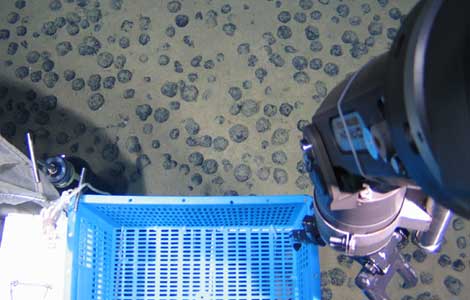
Countries cooperate for tougher stance on transnational crimes
Canada and China will take a tougher approach to crack down on transnational crimes, Canadian Foreign Minister John Baird told China Daily on Thursday.
The two countries concluded negotiations on a deal called the Agreement of Sharing of Forfeited Assets and the Return of Property before Baird wrapped up his two-day visit to Beijing.
"We look forward to ensuring that Canadian and Chinese criminals do not use the Canadian-Chinese route to move their assets around," the foreign minister said.
Once signed and approved, the landmark agreement may enable one country to get money back if a fugitive transfers illegal assets to the other country.
The two countries are "working harder to get greater cooperation on security" to deal with transnational crimes, human smuggling and human trafficking, Baird said.
The move is a further development of the Canada-China Joint Statement of December 2009 and the Joint List of Outcomes of February 2012.
Both countries must now complete their internal processes for signing and ratifying the agreement before it takes effect, according to a news release from Canada.
Canadian law requires that a formal asset-sharing agreement with a foreign state must be signed and effective before any forfeited proceeds of a crime can be shared with that country.
The foreign minister arrived in Beijing on Wednesday after the two countries finished their discussions on a possible bilateral free trade agreement.
As for the timing of initiating formal FTA negotiations, the senior diplomat said "hopefully in a short order we will be able to have a dialogue with our Chinese counterpart on this part".
FIPA expected
He also indicated that Canada is focused on sealing free trade pacts with the European Union and India before "turning attention" to China.
Meanwhile, media reports said the Canada-China Foreign Investment Promotion and Protection Agreement has not been ratified by Canada.
Canadian Prime Minister Stephen Harper and then-Chinese president Hu Jintao witnessed the signing of the FIPA on Sept 8.
Bilateral trade reached record levels in 2012, and China is now Canada's second-largest export destination after the United States.
The FIPA may have an economic or ecological impact on Canada, Canadian media quoted some observers as saying. Baird said Canada is very pleased with the outcome of the negotiations on the FIPA.
But "the administrative process in Canada has taken a little bit longer than we have expected", he said.
Asked about the possibility of the FIPA being rectified by the Canadian cabinet, he said "absolutely" but without a particular date in mind.
Key government officials paid attention to the agreement, including the trade minister, and it is expected to be brought into force "in short order", Baird said.
It was Baird's first China visit after the new Chinese leadership was unveiled months ago.








